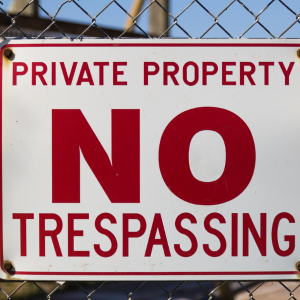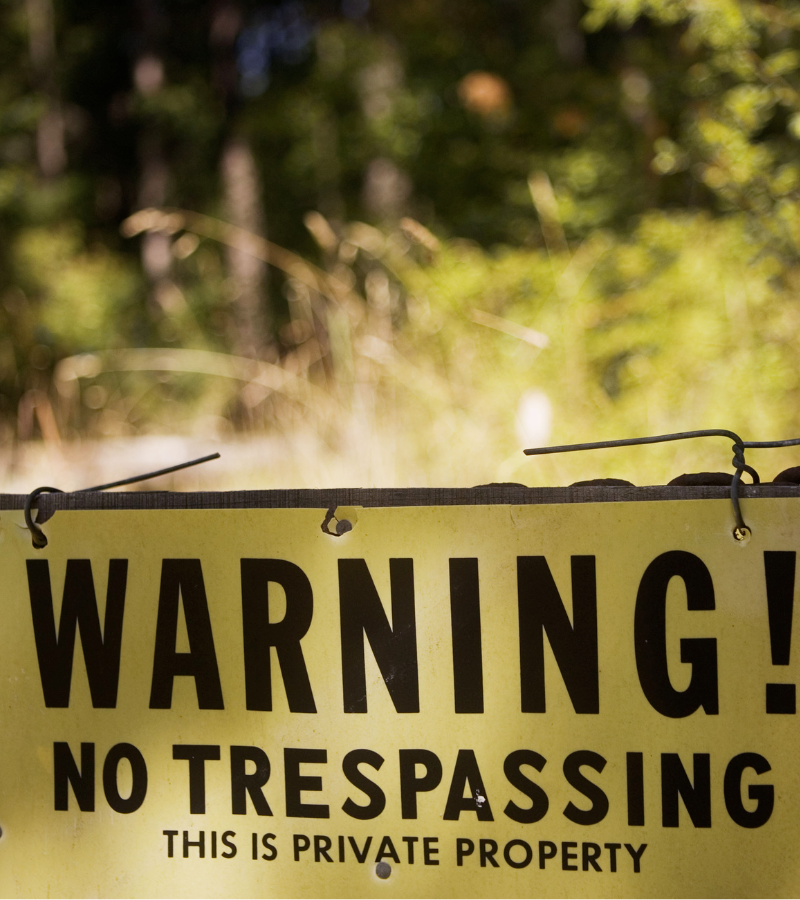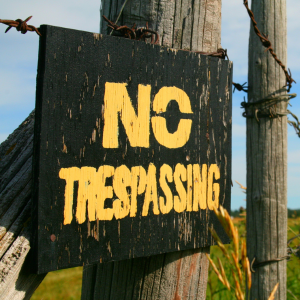
No one wants uninvited houseguests who think rent is optional in their Louisville property. If your neighbor texts you asking why there’s laundry hanging on your back porch or a car parked in your driveway while you’re living overseas, your house might be in trouble.
Don’t worry, though! You can sell this disaster. Louisville buyers hunt for properties with squatter drama because they know how to handle the mess.
Learning how to sell a house with a squatter in Louisville, KY, just means finding these buyers and being smart about your approach!
Squatter vs. Holdover Tenants vs. Trespassers: Legal Distinctions

Kentucky courts love their legal categories, so let’s figure out which box your freeloading houseguests belong in. You’ll waste months chasing the wrong legal strategy if you get this wrong.
Squatters waltzed into your property without asking anyone. They saw your vacant house and thought, “free real estate!”
Meanwhile, a holdover tenant used to pay rent but stayed after their lease expired. Trespassers drop by occasionally but don’t live there full-time. They’re more part-time property borrowers.
Under Kentucky law, each category receives different treatment. Holdover tenants are the hardest to remove because they once had legitimate tenant status.
Squatters get some protection depending on how long they’ve been freeloading. Trespassers receive almost no protection and can usually be removed by police fairly quickly.
You need to assess their living situation to determine which type you’re dealing with.
Kentucky Squatters Rights
Squatters can legally steal your house if they have lived there for 15 years without leaving. It’s shocking but true!
That’s 15 years of paying bills, mowing grass, and acting like they own the place. If they miss a month, they start over from zero. However, a legal cheat code called “color of title” cuts the time down to seven years if they have sketchy paperwork claiming ownership.
Most squatters never meet the 15-year deadline because property owners catch them way earlier.
Still, this timeline matters big time when figuring out how to sell a house with a squatter in Louisville, KY. Why? Because buyers will freak out if your squatter is getting close to that magic number.
When Squatters Can Make an Adverse Possession Claim
Squatters can’t just crash at your place for 15 years and automatically get the deed.
They need hostile possession (zero permission from you), actual possession (physically living there and maintaining stuff), open and notorious use (being obvious to neighbors), exclusive possession (not sharing with you or other squatters), and continuous occupation for the whole period.

Most squatters crash and burn on this test because proving 15 years of perfect compliance is brutal.
Courts want mountains of paperwork, including utility bills, tax payments, maintenance records, etc.
One gap in their documentation and their claim won’t be honored.
Can You Sell a House with Squatters in Louisville, KY?
Yes, you can! The real question is how much money you want to make and how fast you want this stressful sale to be over.
Plenty of buyers prefer properties with squatter situations because they can negotiate prices. Real estate investors always deal with this problem and know how to handle evictions and legal drama.
Meanwhile, cash buyers go crazy for these deals because they can close quickly and sort out the squatter mess.
Your biggest enemy isn’t finding buyers. It’s trying to hide your squatter problem. If you pull that stunt, you’ll nuke any potential sale.
Just be honest about the situation and price it right. You’ll surely find buyers who see dollar signs instead of problems.
How to sell a house with a squatter in Louisville, KY
When selling a house with squatters in Louisville, KY, one wrong move can cost you months and thousands of dollars. Here’s a detailed guide so you won’t miss a step.
Step 1: Assess Your Squatter Situation
First things first: You need to know precisely what you’re up against before you can sell anything. You must also build your case file because everything you collect now will save you drama later.
Document Everything: Photos, Timeline, and Evidence
Start documenting like your bank account depends on it, because it does.
Take photos of their setup, any mail they’re getting, their car situation, plus any damage or changes they’ve made to your place.

Record every conversation, text, or email exchange with these people.
Write down when you discovered them and what they said when you asked them to leave. This will be your ally in court or when explaining the situation to potential buyers.
Identify Squatter Status Under Kentucky Law
You need to determine if these people had legitimate reasons to be there.
Did they used to pay rent? Did someone permit them to stay temporarily? The answers completely change your next steps.
You’re dealing with trespassing if they just showed up without asking anyone and have been there less than a year.
If there’s any history of permission or payment, your legal strategy will be way more complicated.
Evaluate Risk of Adverse Possession Claims
How long have they been squatting? If it’s under seven years, you can breathe easily. If it’s getting close to 15 years, you should start panicking and get legal help immediately.
You should look for signs they’re trying to establish permanent ownership. Some examples are paying property taxes, doing major renovations, or claiming they have paperwork giving them rights.
Most squatters are just freeloading, but some are playing the long game to steal your house literally.
Step 2: Check Your Legal Options
Kentucky has specific rules for booting squatters. You’d better follow them exactly unless you want to start this whole process over again.
You should choose your approach based on how quickly you need them gone (and how much legal hassle you can stomach).
7-Day Notice to Quit Requirements
You can’t just tell them to get out. Kentucky requires written notice first.
Hand it to them personally, stick it on their door, or have the sheriff deliver it, but keep proof of how you served it.
Don’t try to be friendly in this notice. State clearly when they need to be gone and what happens if they don’t leave.
Being nice here just gives them ammunition to claim you weren’t serious about evicting them.

Filing for Forcible Detainer with Jefferson County Court
When your notice gets ignored, it’s lawsuit time at Jefferson County District Court.
This costs less than a hundred bucks and puts real legal heat on your squatters to move.
Show up with your deed, documentation, and proof that you served proper notice. Most squatters won’t bother showing up to court, which means you automatically win and can move to getting them out.
Working with Louisville Area Attorneys
Some squatter situations are too messy for DIY legal work, especially if the squatters have been there for years or claim they have the right to stay.
Don’t be stubborn about getting professional help when you need it.
Look for lawyers who specifically deal with property disputes in Jefferson County.
Most will give you a quick consultation to determine whether your case is simple enough to handle alone or if you’re entering a stressful battle.
Sheriff’s Role in Squatter Removal
Only after you win in court can the Jefferson County Sheriff physically remove your unwanted guests.
Don’t try to do it yourself to avoid facing criminal charges for illegal eviction.
The sheriff’s department handles these removals all the time and knows exactly how to deal with stubborn squatters.
They’ll give them one last chance to leave voluntarily before physically removing them and their belongings from your property.
Step 3: Consider Alternative Resolution Methods
Court battles can take months and cost serious money. This is especially true when you just want your Louisville property sold.
These faster alternatives often work better than the legal route.
Cash for Keys Negotiations with Squatters
Your squatters might actually take money to leave voluntarily and sign away any claims to your Louisville property.
This approach sounds backwards, but it usually costs less than lawyer fees. It also gets results way faster than eviction.
Give them a firm deadline and make this a one-time offer. Most squatters will grab a few thousand dollars to disappear rather than risk getting evicted with nothing.
Everything needs to be in writing and they need to understand they’re giving up any future claims to your place.
Converting Squatter to Paying Tenant
Some squatters actually maintain the property decently and aren’t total disasters as human beings.
You might want to make them legitimate tenants temporarily. That is if they can pay rent and you’re not desperate to sell immediately.
Of course, background checks and proper lease agreements are non-negotiable before you commit to anything.
This option gives you rental income while you plan your selling strategy. However, you’re also stuck dealing with them as tenants instead of getting them out.
Mediation Services in Louisville
Louisville offers mediation services that help you and your squatter reach agreements without courthouse drama.
This is only possible when both sides want to avoid the time and expense of legal warfare.
Mediators help negotiate departure terms, including timelines and any compensation you might pay. Jefferson County Community Mediation handles these cases regularly. Their fees beat hiring lawyers for court fights that drag on forever.
Step 4: Prepare Your Louisville Property for Sale
Your squatter problem is solved, but your property still needs work before Louisville buyers will take it seriously.

Unfortunately, when buyers start nitpicking, rushing through this preparation phase will cost you money.
Title Search and Clearing Possession Claims
Squatter situations sometimes cause legal confusions about your property ownership that need clearing before any sale.
Some squatters file bogus liens or claims that will impact your deal if unresolved.
Louisville title companies can research and resolve these issues before you list your property.
Buyers and their lenders demand a clean title, and any unresolved squatter-related claims will torpedo your sale. This step protects you and gives buyers confidence they won’t inherit your legal headaches.
Property Condition Assessment Post-Squatter
Your Louisville property needs a thorough inspection for any damage your former squatters left behind.
That’s why you must look for holes in walls, damaged floors, broken fixtures, or any sketchy electrical or plumbing work they attempted.
Also, repair estimates for significant damage help you price your property accurately for the Louisville market.
Buyers expect honest disclosure about property condition. In other words, hiding squatter damage backfires when the inspector discovers it.
You’ll need to decide whether to fix or price issues into your sale.
Gather Required Kentucky Property Disclosures
Kentucky law also requires specific disclosures about your property’s condition and history. This includes any Kentucky squatter situations you’ve dealt with.
Hiding this information is pointless because it always surfaces eventually and derails your sale.
Your timeline of the squatter situation and how you resolved it should be clear and complete.
Louisville buyers appreciate honesty about past issues, especially when you can prove the problem was handled properly.
Step 5: Choose Your Selling Strategy
Your Louisville property is ready, but you must pick the right selling strategy.
Market to Real Estate Investors and Cash Buyers Who Handle Squatters
Louisville has plenty of real estate investors targeting properties with squatter histories because they can negotiate better prices.
These buyers understand the legal processes and aren’t scared off by past occupancy issues.
These investors often pay cash and close quickly since they don’t need financing approvals. They’re also more likely to buy your property without demanding repairs or credits.
Marketing to this group means highlighting the investment potential rather than trying to appeal to regular homebuyers.
Pricing Below Market Value for Quick Sale
Louisville buyers expect discounts on properties with squatter histories, even after the problems are resolved.

If you price aggressively below market value, you’ll attract more buyers. You may also create a competition that can drive your final price higher.
Most buyers need financing, which means appraisals and inspections that slow down the process. However, aggressive pricing helps overcome buyer hesitation about your property’s history.
The discount you give up often will get offset by avoiding carrying costs during a longer sales process.
Louisville Agents Experienced with Squatter Properties
Regular real estate buyers often panic when they hear about squatter situations. They either won’t take your listing or don’t know how to market it correctly.
You need Louisville agents who’ve handled these sales before so they know how to present them to buyers.
These experienced agents understand which buyers to target and how to price properties with complicated histories.
They also know how to handle buyer concerns and disclosure requirements without scaring away potential purchasers.
Their expertise usually pays for itself through better sale prices and faster closings.
Selling Timeline For a House With a Squatter in Louisville, KY
Your timeline for selling a house with a squatter in Louisville, KY, depends entirely on which scenario you’re dealing with.
Best Case Scenario: Cooperative Squatter Departure
Your squatters listen to reason and leave voluntarily after you give proper notice or offer them cash for keys.
This ideal scenario lets you list your Louisville property within weeks instead of months.
Even cooperative departures require proper documentation to protect against future claims. Before listing, you’ll still need written agreements, title searches, and property condition assessments.
But you can typically have your property ready for sale within 30 to 45 days of resolving the squatter situation.
Worst Case Scenario: Contested Possession Claims
Your squatters have been there for years and claim they have legal rights to stay or even own your property.
These cases can be pending in Kentucky courts for months while you pay carrying costs and legal fees.
Contested cases often require extensive legal discovery, multiple court hearings, and sometimes appeals. You might be looking at 6 to 12 months or longer before you can even think about selling.
These situations require experienced legal representation. Often, they also involve title insurance claims or other complications.
Average Timeline for Louisville Squatter Evictions
Most Louisville squatter evictions take two to four months from start to finish when you follow proper legal procedures.
This includes serving notice, filing court papers, waiting for hearing dates, and getting sheriff enforcement.
Jefferson County court schedules affect your timeline, especially during busy periods when hearing dates get pushed back.
After the eviction, you must invest additional time in property preparation and marketing. Most property owners can realistically expect to list their property three to six months after starting the eviction process. At Kentucky Sell Now, we specialize in buying houses fast for cash and have helped many Louisville homeowners close deals quickly and stress-free. Check out other frequently asked questions sellers ask about working with Kentucky Sell Now. If you’re wondering about alternative sale methods, check out our guide on selling your house with a quitclaim deed in Louisville, KY.
How to Protect Your Financial Interests During the Sale
Selling a house with squatters in Louisville means you may experience extra financial risks that regular property sales don’t have.

Your carrying costs pile up while you deal with legal procedures. Meanwhile, buyers might demand price concessions or walk away entirely.
Title Insurance for Properties with Squatter History
Your Louisville property needs enhanced title insurance coverage. Squatter situations can create potential ownership disputes that standard policies might not fully cover.
Past squatter occupancy can trigger claims years after you think everything is resolved.
You should work with Louisville title companies that understand squatter-related risks and can recommend appropriate coverage levels.
Enhanced policies cost more upfront but protect you from future lawsuits if your former squatters try to claim ownership rights. This is also useful if their bogus liens surface after closing.
Escrow and Buyer Protection
Louisville buyers purchasing properties with squatter histories often require longer inspection periods and additional contingencies to protect themselves.
Your purchase contract might include holdback provisions where part of the sale proceeds stay in escrow until certain conditions are met.
These protective measures slow your closing timeline but help ensure the sale is complete.
Buyers might want proof that all squatter-related legal issues are resolved before releasing escrowed funds. Being flexible with these terms often means the difference between getting a sale and losing buyers. We buy houses fast and pay cash. Don’t just take our word for it — learn why homeowners trust us and see how simple our process is.
Manage Carrying Costs During Extended Process
Property taxes, insurance, utilities, and maintenance costs continue piling up while you deal with squatter removal and property preparation.
These carrying costs can affect your sale proceeds if the process takes months.
You need to budget for extended timelines. You should also consider whether paying squatters cash for keys might be cheaper than months of carrying costs plus legal fees.
Track all expenses related to the squatter situation because some might be tax-deductible as business losses or capital improvements when you sell.
When Cash Buyers Are Your Best Option
Cash buyers specializing in problem properties often provide the least stressful way to sell your Louisville house with a squatter situation.
These buyers understand exactly what they’re getting into and price their offers accordingly.
Cash buyers don’t need financing approvals, which removes one of the biggest obstacles when selling properties with complicated histories.
They also typically buy as-is, so you don’t have to fix squatter damage or worry about inspection issues killing your deal! At Kentucky Sell Now, we’ll buy your house fast for cash and skip the usual listing process. We’ve helped countless Louisville homeowners sell their homes quickly and easily.
Key Takeaways: How to Sell a House with a Squatter in Louisville, KY
When selling a house with squatters in Louisville, your biggest priorities are documenting everything, understanding your legal options, and being honest with potential buyers about the situation.
Most squatter situations take two to six months to resolve completely. This depends on how cooperative your unwanted occupants are and whether they have any legitimate claims to stay.
Louisville has plenty of buyers targeting properties with squatter histories, including cash buyers who can close quickly.
If you’re dealing with a squatter situation and need to sell fast, contact us at Kentucky Sell Now! You may also call (502) 610-0070 or fill out the form below for a hassle-free sale.
Helpful Louisville Blog Articles
- Sell Your Louisville, KY, Home With A Reverse Mortgage
- Medical Liens On Homes In Louisville, KY
- How To Successfully Sell Half of a Duplex In Louisville, KY
- Homeowners Insurance When Selling a House in Louisville, KY
- How to Sell a House with a Squatter in Louisville, KY
- Can You Sell Your House with a Quitclaim Deed in Louisville, KY?
- What Is The Best Time To Sell A House In Louisville, KY
- Who Pays Taxes When Selling A House in Louisville, KY
- Can You Sell Your Louisville Home Below Appraised Value
- Do You Need A Lawyer To Sell Your House In Louisville, Kentucky?
- Sell Your Louisville, KY, Home Amid A Pending Lawsuit
- Cost of Asbestos Removal in Louisville, KY


